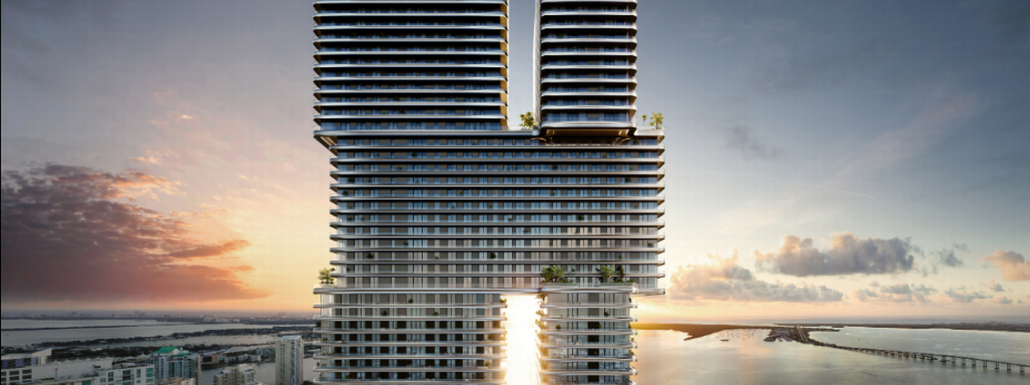What’s In A Name? The Potential Risks Of Miami Luxury Branded Condominiums
In the world of high-end residential real estate, developers are constantly pushing the boundaries of “luxury,” searching to meet the needs and desires of an ever-growing base of high-net-worth consumers.
From rooftop helipads to private elevator garage systems, there are no limits to the amenities and services South Florida developers offer to woo their ultra-rich clientele.
Recently, a new trend has emerged in this fight to control the 0.1%, branded condominium buildings. As detailed by reporter Rebecca San Juan in her recent Miami Herald article, First Porsche, now Mercedes, what started as a trickle is now a wave of branded condominium projects descending upon South Florida’s real estate market.
Although demand remains high, supply is also trending upwards, as shown in recent data published by the Miami Association of Realtors. The data states that approximately 7.4 months’ supply of condominium inventory remains available, nearly double the available supply from last year.
This comes at a time when significant supply is expected to flood the market with unit owners flocking from older buildings mandated for repairs under Senate Bill 4D and developers completing a slate of new projects scheduled for 2024-2025.
Bentley, Cipriani and now Mercedes-Benz are just some of the luxury names set to grace the new Miami skyline, as brand-owners line up to cash in on the latest real estate craze. Despite a burgeoning reversal in condominium supply and demand trends, the appetite for branded condominiums has only grown among high-level consumers.
However, while the allure of purchasing a branded condominium may be tempting, most buyers are not aware that the brand name pedigree they have purchased into is merely on lease to the association, subject to terms and conditions that often leave purchasers with fewer rights than obligations.
One of the most significant risks associated with these projects is that prospective buyers mistakenly believe the brand association is guaranteed for life when, in reality, it is almost always owned by a third party and licensed only for a specified period. If the license does expire, brands may choose not to renew it, effectively stripping the building of its name.
Even during the license term, the governing agreements generally provide brand owners the right to terminate at will or claim a breach of one of the many subjective standards contained therein. These oversight provisions are intended to maintain the brand’s image and reputation but severely limit the association’s power to manage the condominium according to the residents’ needs.
Mixed-use hotel condominiums across South Florida are foreshadowing the inherent conflicts in development governed by multiple parties, and the results speak for themselves as many such projects are already entrenched in litigation between the operators.
Branded condominiums pose an even greater threat since brands have the leverage to dictate required expenses for use of the license but have no obligation to contribute to the inflated budget passed on to ownership. Lastly, most importantly and above all else in Miami, what if what’s in style today, simply isn’t in style tomorrow? How might public perceptions of your condominium’s brand affect your future ability to sell a unit at the Balenciaga Residences or Yeezy Towers?
Source: Miami Herald



